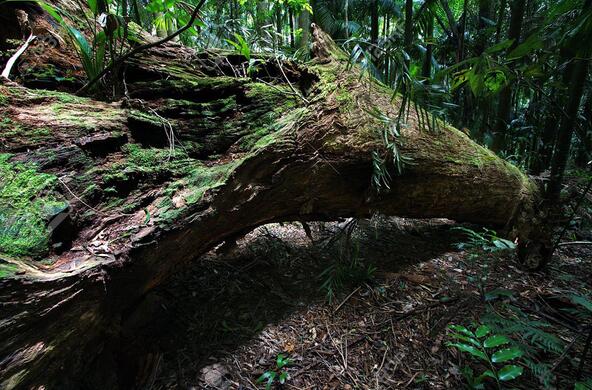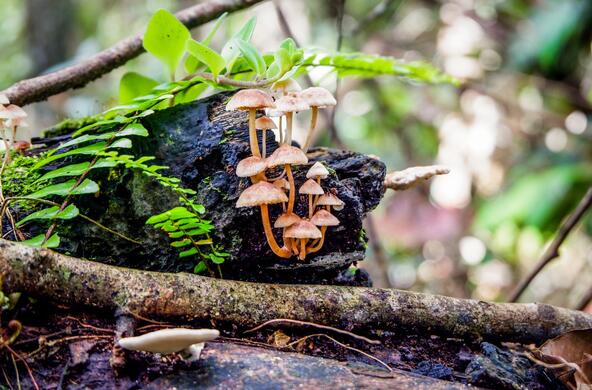- Profile
- Videos & Podcasts
- Publications
- News & Multimedia
Amy Zanne is an ecologist and evolutionary biologist. Her research focuses on interactions among plants, microbes and insects, and how they affect carbon cycling under current and future projected climates. To explore these questions, she also studies ecological, evolutionary, and biogeographic determinants of species distributions by measuring physiological, morphological, and anatomical functional traits. She explores ecosystem-level consequences of differences in species and trait distributions, for instance, traits of plants, microbes and insects that most affect rates and forms of carbon release with feedbacks to the earth system. Currently, she has international field projects in Australia, Brazil, Chile and Antarctica and local field projects at Cary. Most recently, she is starting several projects. These include research in Brazilian Cerrado to determine the role of seasonal wetlands in storing carbon and releasing CO2 and CH4, as well as building a global network of networks and database of databases of plant-microbe interactions.
Articles
Why do termites thrive in Florida?
Fox News
Termites love global warming – the pace of their wood munching gets significantly faster in hotter weather
The Conversation
Hungry and on the march as the climate heats up: Termites in Australia
Washington Post
Termites work through wood faster when it’s hotter out
Popular Science
Climate change is GREAT for termites! Wait what is this?
The Guardian
Study: plants might lack traits needed to cope with climate change
VOA
Plants in all their glory – more than just green blobs
Journal of Ecology Blog
Podcasts
Can wolves form close bonds with humans, and termites degrade wood faster as the world warms
Videos
Science Art Collaborations
DE-compose: Exploring the intersections between art and science
Wood Termites Fungi : Artist in Residence (2019 - ongoing)
The Bigger Picture: art-science collaboration on the Wood, Termite, Fungi project
Why include an artist in a science project?
Exhibition shows how global and local perspectives offer a renewed focus for living




